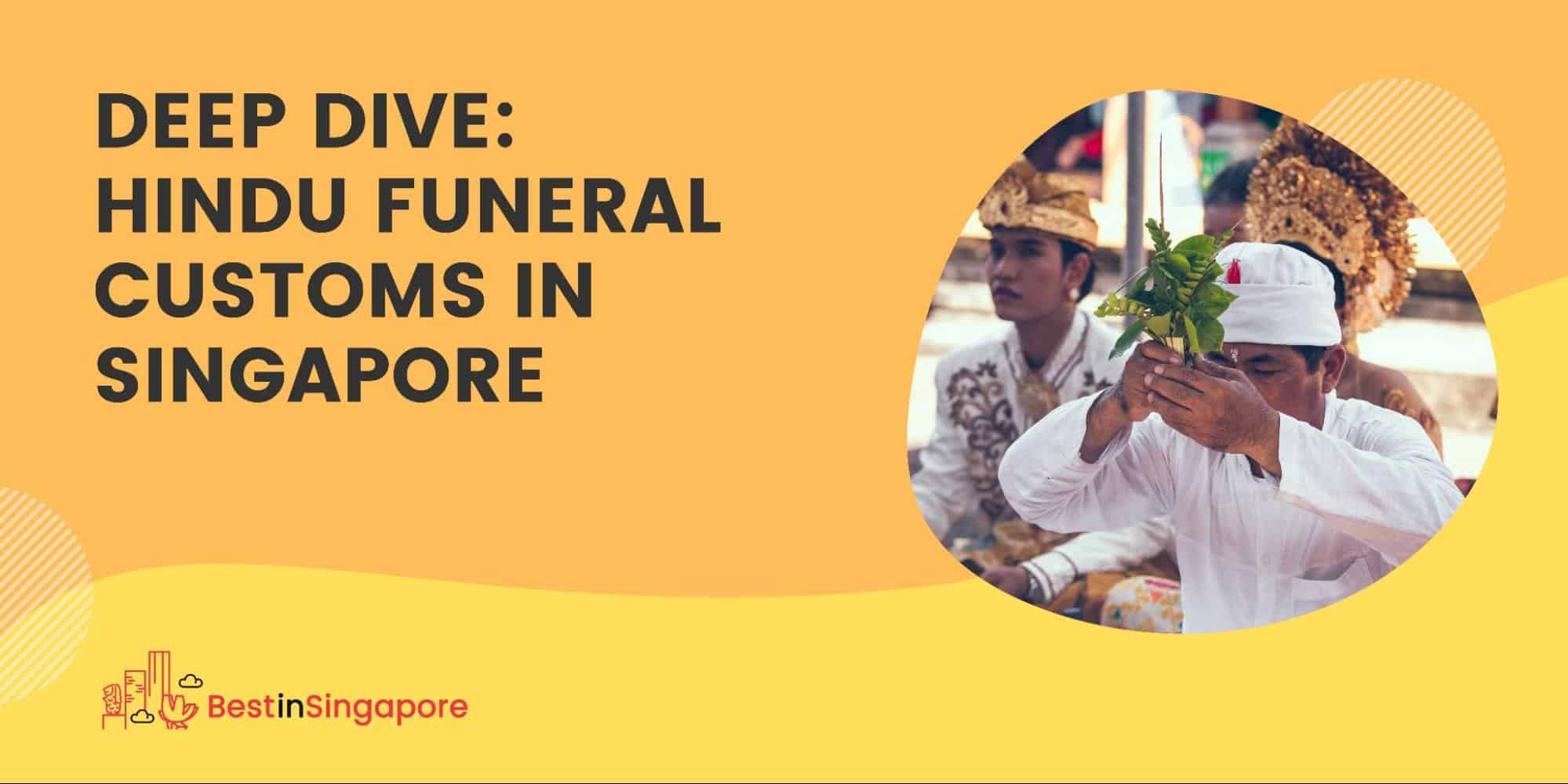Deep Dive: Hindu Funeral Customs in Singapore
The funeral landscape is constantly evolving. Hindu funerals in Singapore are no different, seeing that they combine a unique mix of ancient rituals and modern practices.
Curious about what those rituals are? Fortunately for you, we’ll be deep diving into Hindu funeral customs in Singapore today, including a background of their beliefs surrounding death.
A General Overview of Hindu Funerals
In Singapore, the Hindu community only makes up 5% of the population, which is why Hindu funerals aren’t very common here.
Hinduism has different sects and subsects with some nuances in funeral rituals and beliefs. However, they all still share some common practices, which are generally quick and straightforward.
Following the death of a Hindu, the family of the deceased cleans the body immediately. Often, this is performed by women in the family before dressing the deceased in simple white clothing.
Traditionally, the body of the deceased will be kept at home until the cremation. Embalming the body isn’t really necessary as most Hindu funerals take place 24 hours after someone’s death.
In Singapore, many Hindu families opt for funeral parlours or void decks to hold the wake instead. Hindus traditionally don’t eat during wakes but more and more younger Hindu families arrange for catering as well.
Once the body is ready for viewing (either in a casket or sometimes on a platform covered by flowers), a priest or “karta” will lead the service, chanting hymns and prayers.
While eulogies aren’t traditionally practised, more families in Singapore tend to deliver their eulogies during the service.
From there, the body is transported to the crematorium via a hearse.
In the past, only men were allowed to go to the cremation site. This isn’t the case in Singapore, as more women choose to go to the cremation site.
Many Hindu families still prefer to scatter the ashes of their loved ones over a sacred body of water, particularly along Ganges River in India.
This is why some families use repatriation services to send their loved one’s ashes to their relatives in India, for instance. Their relatives would be responsible for scattering the ashes along the banks of Ganges River.
Behind Hindu Beliefs about Death
Just like with other religions, Hindus consider death an important stage of one’s life but not necessarily the end. Most (if not all) of their funeral practices revolve around the concept of reincarnation, as you’ll see detailed below:
Samsara
Otherwise known as reincarnation, samsara is a Hindu concept that involves a continuous cycle of death and rebirth. In other words, a person’s soul (known as “atman”) will be reborn to another body following their physical death.
Following the death of a person, Hindus believe that the deceased’s body no longer has a purpose. This is why they practise cremation as soon as possible.
Karma
Karma is a central concept in many religions, including Hinduism and Buddhism. Essentially, karma states that a person may either be rewarded or punished depending on their actions.
Say a person has done more good deeds than bad throughout their life. In this case, Hindus believe that this person would be rewarded in their next life.
For this reason, chanting prayers and hymns are essential during funeral rites. It’s believed that this practice will yield positive karma to the deceased.
Swarg and Narak
Some Hindu traditions believe that a person’s soul or atman may enter “swarg” or “narak” for a certain time before reincarnation, depending on one’s karma. These two concepts are synonymous to heaven and hell, respectively.
After a person has passed away, their soul would be taken to the court of Yama (or the god of the dead in Hinduism), where they’ll be judged for their actions. Good souls will be sent to swarg, while the bad ones will be expelled to narak.
Unlike with other religions, heaven and hell in Hinduism are only seen as temporary places.
Once they’ve served their time, the soul will either be reborn as a “lower being” (like animals, plants) or “higher being.” Again, this ties back to the law of karma, which is why praying and chanting during funerals is mostly addressed to Yama.
Moksha
Moksha is the final stage of one’s soul that ends the cycle of samsara or death and rebirth. To attain moksha, it’s believed that one must live their life according to the teachings of Hindu scriptures.
Hindu philosophy describes moksha as the merging of one’s soul with Brahman, otherwise known as the supreme being that created all things.
This is why Hindus scatter their loved one’s ashes along Ganges River, which is considered to be the most sacred place to scatter ashes. Hindus believe that this act would help one’s soul achieve moksha, or at least improve their chances of having a better life in their next one.
It’s also why many Hindus in India choose to cremate their loved ones directly along the river banks. That way, it will be easier for them to scatter the cremated remains.


